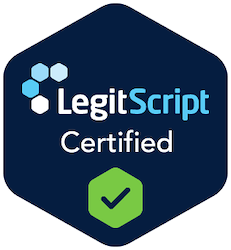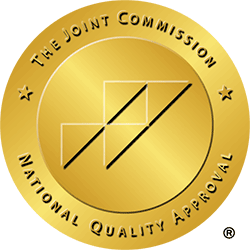
Veterans frequently encounter complex obstacles when dealing with substance abuse as a result of the unique stressors associated with military service and the challenges of transitioning to civilian life. Effective treatments should cater to these specific requirements. BriteLife Recovery Hanover offers a variety of therapies tailored to veterans, incorporating both traditional and cutting edge approaches to support holistic recovery.
1. Cognitive Behavioral Therapy (CBT):
Cognitive Behavioral Therapy (CBT) proves highly effective in addressing substance abuse, particularly in the veteran community. It concentrates on recognizing and modifying negative thought patterns and behaviors, aiding individuals in comprehending the triggers behind their substance use and cultivating healthier coping mechanisms.
Advantages:
Tailored Approach: CBT can be customized to target prevalent issues among veterans like PTSD and depression.
Skill Development: Equips veterans with practical skills for managing stress, anxiety and cravings related to substance use.
Sustainable Results: Encourages lasting behavioral changes that assist in maintaining sobriety.
How It Benefits Veterans:
The focus of CBT on building coping strategies and altering thought processes makes it a valuable resource for veterans navigating the complexities of substance abuse and mental health challenges.
2. Trauma Informed Care (TIC)
Given that veterans often have a history of significant trauma, Trauma Informed Care (TIC) plays a vital role in their treatment plan.
TIC recognizes the significant impact of trauma and aims to establish a secure and supportive treatment environment to prevent re traumatization.
Advantages:
Safety: Prioritizes both physical and emotional safety, especially important for veterans recovering from trauma.
Empowerment: Fosters trust and empowerment by highlighting strengths and resilience in individuals.
Holistic Approach: Addresses the physical, emotional and psychological dimensions of trauma.
Benefits for Veterans:
The holistic approach of TIC ensures that veterans receive care that honors their experiences and fosters comprehensive healing.
3. Nature-Inspired Therapy (NIT)
Nature-Informed Therapy (NIT) leverages the therapeutic benefits of nature to facilitate recovery. Veterans can engage in outdoor activities as part of their therapy, finding solace and connection in natural surroundings.
Advantages:
Stress Relief: Engaging in activities like hiking and mindfulness amidst nature helps reduce stress and anxiety.
Physical Well-being: Encourages physical activity for improved mental and physical health.
Connection: Cultivates a sense of connection and tranquility through nature.
Benefits for Veterans:
NIT offers veterans a serene environment that enhances their overall well being while supporting their mental health needs.
4. Medication Assisted Treatment (MAT)
Medication Assisted Treatment, known as MAT, involves using medications alongside counseling and behavioral therapies to address substance use disorders. This comprehensive approach is effective in managing cravings and alleviating withdrawal symptoms.
Benefits of MAT include:
Craving Reduction: Medications like buprenorphine and naltrexone play a key role in reducing cravings for substances.
Comprehensive Care: By combining medication with counseling, MAT offers a holistic approach to treating substance use disorders.
Stabilization: MAT helps stabilize brain chemistry and improve the overall quality of life for individuals undergoing treatment.
How It Supports Veterans:
MAT provides essential medical assistance to veterans by easing the withdrawal process and lowering the chances of relapse.
5. Eye Movement Desensitization and Reprocessing (EMDR)
Eye Movement Desensitization and Reprocessing (EMDR) is a therapeutic technique aimed at helping individuals process and recover from traumatic experiences that are often linked to substance abuse issues. It is particularly beneficial for those grappling with PTSD.
The benefits of EMDR include:
Effective for PTSD: EMDR has been shown to reduce symptoms associated with PTSD, which is common among veterans.
Accelerated Healing: This therapy can bring about rapid relief from symptoms and aid in processing traumatic memories.
Holistic Approach: EMDR addresses both the emotional and physical impacts of trauma.
How It Supports Veterans:
EMDR assists veterans by aiding in the healing process of trauma, which frequently serves as an underlying cause of substance abuse problems.
6. Family Therapy
Family therapy includes involving family members in the healing process, offering guidance and encouragement to enhance connections and communication.
Advantages:
Support System: Boosts the veteran’s network of support, which is essential for their recovery.
Educational Aspect: Informs families about substance abuse issues and their part in aiding recovery.
Enhanced Relationships: Fosters healthier family interactions and minimizes conflicts.
How It Benefits Veterans:
By creating a nurturing atmosphere, family therapy aids veterans on their path to recovery by enhancing family dynamics and communication.

Effective treatment for veterans battling substance abuse requires therapies that address the unique challenges faced by this group. BriteLife Recovery Hanover offers a variety of approaches that are particularly beneficial for veterans, including CBT, TIC, NIT, MAT, EMDR, and family therapy. These therapies provide comprehensive support, addressing the complex interplay of trauma, mental health, and substance use disorders, ultimately aiding veterans in their journey towards recovery.
RESIDENTIAL TREATMENT HANOVER, PA
RESIDENTIAL TREATMENT HILTON HEAD ISLAND, SC



